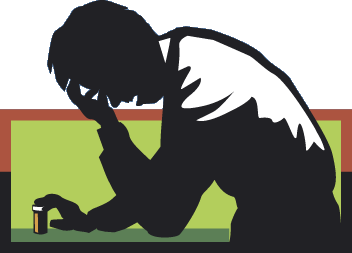
Depression: its causes and treatment
There are also many symptoms of this condition which cannot all be listed here, but the most commonly experienced symptoms can be listed as follows:

- Persistently Low Mood: a painful sense of misery, sadness or dejection
- Fluctuation in mood which can often be abrupt and extreme
- Loss of energy and loss of interest in general
- Loss of appetite and weight changes
- Early morning waking and overall sleep disturbance
- Agitation and anxiety
- Thoughts and feelings of guilt
- sense of worthlessness
Treatment for depression also varies. It is recommended that you have a diagnosis made by a GP or Psychiatrist as many types of depression require a pharmacological approach which involves the use of anti-depressant drugs. Drugs alone can improve the mood in many cases, but research shows that a combined psycho-pharmacological approach often produces the most enduring improvements. In general the drugs can place you in a position to be able to be able to accept treatment and the therapy will help you to challenge the way you see the world today, find a more constructive and less negative approach to life and develop a set of alternative coping mechanisms. It will also aim to raise your levels of self esteem which can help protect you in the future.
Many sufferers also experience feelings of shame or guilt about feeling this way and tell themselves that they should be strong and able to cope with life without having these terrible feelings. This sense of having to battle on alone usually leads to a worsening of the symptoms. There is no shame in having an illness, and with the right help you can get release from this condition and have a more fulfilled and happy life.
You can contact us directly or go via a GP/Psychiatrist who may refer you to us. The most important thing is do not go on suffering alone.